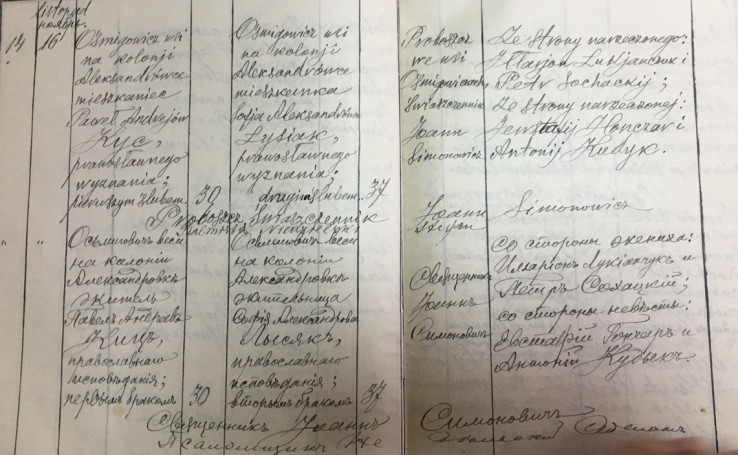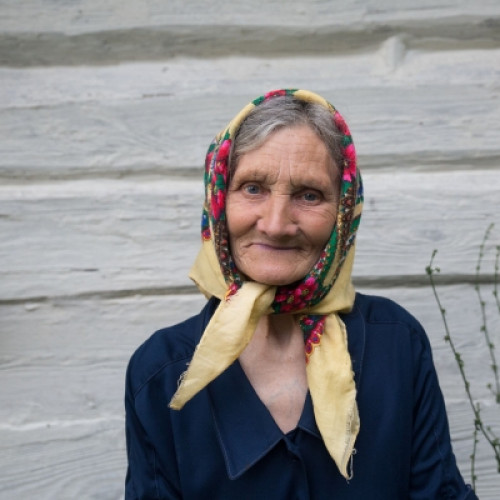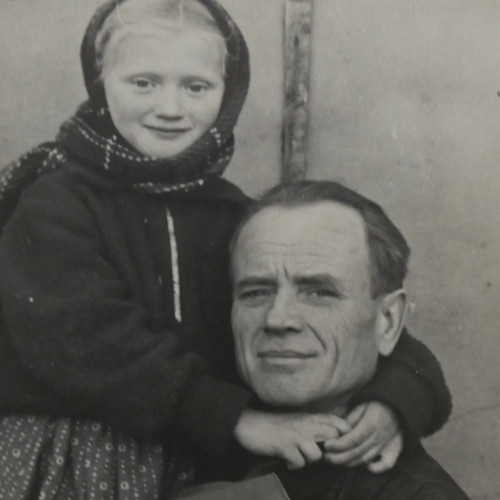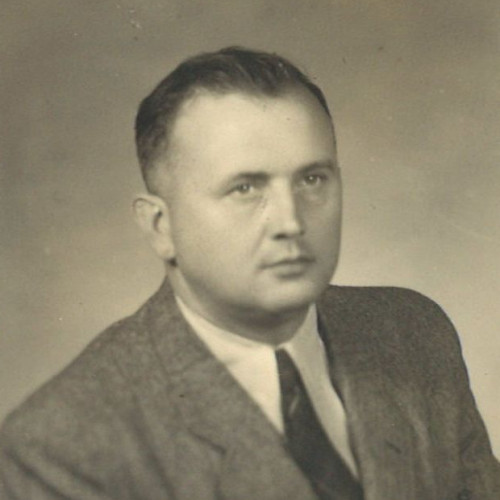Sofia Kyc (1890–?) Pawło Kyc (1897–?) - Instytut Pileckiego

Pavlo Kyts had no doubts – their Polish neighbors were in grave danger. On the evening of 15 July, Pavlo decided to help two neighboring families.
News of the events which unfolded on 11 July 1943 at the church located less than 5 kilometers away reached every inhabitant of Aleksandrówka within a few days. After a Holy Mass in Kisielin [now Kysylyn], units of the Ukrainian Insurgent Army (faction of the Organization of Ukrainian Nationalists) murdered about 90 people, including women and children. Soon after the attack, armed bands appeared in the forest near Aleksandrówka. Sofia and Pavlo Kyts had no doubts – their Polish neighbors were in grave danger. On the evening of 15 July, Pavlo decided to help two neighboring families. Kamila Ziółkowska recalled that “when evening came, our Ukrainian neighbor Kyts came by and told us not to spend the night at the house.” Pavlo Kyts also warned the Adamowicz family – Teresa, who was nine years old at the time, remembered that “he took us quickly to a close neighbor, Koren, and they hid us in a room under lock and key.” Teresa’s grandfather, Michał Adamowicz, found shelter at Pavlo and Sofia’s farmstead. The spouses were fully aware that they were risking not only their own lives, but also those of their two teenage children: Olha and Mykhailo.
Despite the help provided by Sofia and Pavlo Kyts, not all the members of the Adamowicz family survived. In September 1943, Banderites killed Teresa’s parents and her three siblings. Among the survivors were Teresa and her grandparents, Tekla and Michał. The latter was kept in hiding by Pavlo and Sofia until 1944.

“Soon Kyts came to warn us not to sleep at the house because you never knew [what could happen] – it would be best for mum and children to spent the night at Kyts’ farmstead. Evening was drawing near, so we followed Kyts with our mum, while dad stayed [at the house]. Just as we had reached the farm, shots were fired at the other end of Aleksandrówka [now Oleksandrivka]. Kyts quickly led us to a close neighbor, Koren, and they hid us in a room under lock and key.”
Account of Teresa Radziszewska, Kiedy przyszli nas zabijać, Archiwum Ośrodka Karta [KARTA Center Archives], AW II/191
See also
- Ołeksandra Wasiejko z d. Łukaszko (ur. 1946)

awarded
Ołeksandra Wasiejko z d. Łukaszko (ur. 1946)
During the Volhynia Massacre in the summer of 1943. Over the next seventy years Oleksandra Vaseyko kept alive the memory of the victims, bringing flowers to their graves and keeping them in her prayers.
- Anatolij Giergiel (1904—1981)

awarded
Anatolij Giergiel (1904—1981)
In the summer of 1943 in Volhynia, having learned about a planned attack by Ukrainian nationalists on Poles, Anatolyi Giergiel warned his friend.
- Jan Jelínek (1912–2009)

awarded
Jan Jelínek (1912–2009)
In 1937, the care of the Evangelical parish in Kupiczów, Volhynia was entrusted to Jan Jelínek. The young pastor won the hearts of the Czechs, who had settled there in the 19th century. In his sermons he preached love of neighbor regardless of his beliefs.


